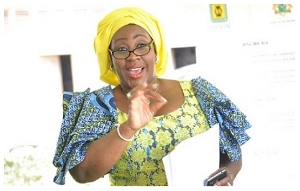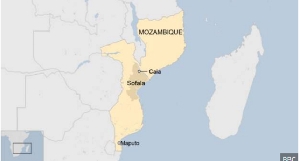- Home - News
- TWI News | TV
- Polls
- Year In Review
- News Archive
- Crime & Punishment
- Politics
- Regional
- Editorial
- Health
- Ghanaians Abroad
- Tabloid
- Africa
- Religion
- Election 2020
- Coronavirus
- News Videos | TV
- Photo Archives
- News Headlines
- Press Release
Opinions of Friday, 14 December 2012
Columnist: Kumbalonah, Abobo
Reflections on Post-election Disagreements in Ghana.
“How Did We Get Here?”: Reflections on Post-election Disagreements in Ghana.
Events leading to the declaration of election results and reactions to the figures announced by the Electoral Commission call for concern by all peaceful citizens of Ghana. On this point, I would acknowledge and commend the President-elect, John Mahama, and the NPP standard bearer, Nana Akuffo Addo, for their post-poll utterances. They have both stressed on the necessity of safeguarding the political tranquility of Ghana. Here, I take a special note of the NPP’s Obra Spot-assemblage on Tuesday where they officially rejected the Electoral Commission’s verdict on the elections. I was particularly impressed by Nana Addo’s statement that though he disagrees with the official results, he and his party would discourage their supporters from resorting to acts of violence. I think that statement came in a timely manner to calm down flaring nerves while the leadership of the party tries to use due process to challenge the outcome of the electoral process. While the NPP’s peace pledge is laudable, it is also important to examine the factors which may have led to the current situation where some party followers are manifesting signs of anger.
I think the problem that we are faced with today is not about antagonism between the two main political parties. As evident in the entire campaign period, the NPP and the NDC are capable of competing, disagreeing, in the most civil possible way. Never did we hear of one group attacking its political opponent during campaigns. The two IEA Presidential Debates were examples of election related events that offered compelling evidence to the world of democratic consolidation in Ghana. The present state of affairs, I think, emanate from the usurpation of the function of the EC as the only body with the mandate of conducting elections and declaring a winner. When Kwadwo Owusu Afriyie, the General Secretary of the NPP, went ahead of the EC to proclaim Nana Addo as the winner, I became worried. In as much as I recognize that his statement was a strategy to caution any group of people or individuals who might have intentions of manipulating figures to be aware of the fact that people are observing their acts, I think that his statement deviated from its purpose when he made emphatic claims of victory and asked NPP supporters to begin jubilating. His speech sounded like a victory acceptance speech. The kind that Nana would have given if he had been announced the President-elect. By that act, he fixed the minds of NPP followers on victory ahead of EC’s declaration. So that in the event of the official figures proclaiming someone either than Nana Addo victorious, the NPP supporters would not agree. He was aware of this specific effect of his speech on NPP supporters. In my opinion, that is why he later warned the EC not to declare the results of the elections because the NPP leadership cannot guarantee that their supporters would react peaceful to EC’s announcement. It is on the basis of this that I consider Kwadwo Owusu Afryie’s post-election utterances risky to the peace and political maturation of the country.
I am by this article, in no way, dismissing the NPP’s allegations of fraud in the elections. To the contrary, I think that the claims could be true. This opinion is, however, not based on any direct evidence I may have affirming the complexity of the NDC in electoral malpractice. My opinion is simply predicated on public knowledge on some events that took place prior to December 7th. These occurrences, one of which I shall presently refer to, give anyone competing with the NDC for political power some probable cause to be suspicious. We all heard NDC’s Yaw Boateng Gyan on tape planning to infiltrate the security service with their supporters for the purpose of election “monitoring”. Though no statement was made on the tape to suggest rigging the election, it is reasonable to think that they were being planted within the security service to serve no other interest than that of the NDC. If we understand that the principal aim of any political party is to win power, then those “security men” were certainly going to be used in acts that would ensure victory for the NDC. What we should be concerned here is how they are going to promote the NDC’s agenda. Are they going to function in a way which could subvert the democratic voice of Ghanaians in favor of the NDC? This is the question we should try to answer. Unfortunately, however, it is only the NDC that is capable of answering the question. On the tape, Yaw Boateng Gyan himself is heard making statements that suggest he doubts the integrity of the people he is trying to “recruit” into the security service. He expressed his disappointment in some of them whose services were engaged in previous elections, admitting that they abused the “power” given them. So if even the NDC cannot vouch for the behavior of these people. And disturbingly, non-NDC members have no way of knowing the exact function of these individuals in elections. I consider this as enough grounds for concern. This especially becomes the case when Col. Gbevlo Lartey, the National Security Coordinator, dismissed, forthwith, calls for the content of the tape to be investigated. Under such circumstances, as this election would confirm, we create room for election disputes based on already existing feelings of distrust.
But as the case goes to court for redress, I would make an appeal to both the NPP and the NDC. They must understand that the people of Ghana cannot be made victims of their disagreements. Put together, those who voted for either the NDC or the NPP are 10,823,659. This constitutes less than half of the country’s approximately 25,000,000 population. Democratically and morally speaking, followers of these two political parties cannot place their interests above those of the majority of the population. As they have committed to the rule of law, I am expecting that they demonstrate this in their actions and speeches. They need to submit to the same legal system which gave them the right to contest for political power. If we agree to the constitution guaranteeing elections every four years, we should also consent to legal provisions established to provide guidelines to resolving disputes related to elections. We must know that the many cameras that were in front of Afari Gyan when he was declaring the elections represent both local and international observatories. They are still fixed on us and so we cannot afford to fail the test. For those of us who live in the West, we are constantly faced with moments when we have to come to the defense of Africa. It is a task we have committed our academic and social lives to despite the widespread negative report here on Africa. We are able to defend Africa not because we think it is not facing any difficulties, but precisely because of the success stories of countries like Ghana. When they point to Somalia, for example, as evidence of the backwardness of Africa, we are confident to put up a defense because we can point to shining examples like Ghana and other countries to counter the negative depiction of Africa. If Ghana fails this test, we will have almost nothing to point to in our positive presentation of the content. Let us all Ghanaians remember that we are not doing this only for ourselves. There are those with pens and sheets of papers ready to write a statement about Africa should the current situation turn violent. We cannot give such people ammunitions to fire back at us. Let us prove to the world that if it is disagreements that we cannot avoid, for violence we can avoid. Long live Ghana! Long live Africa!
Abobo Kumbalonah
Athens, Ohio.
akumbalonah@gmail.com










